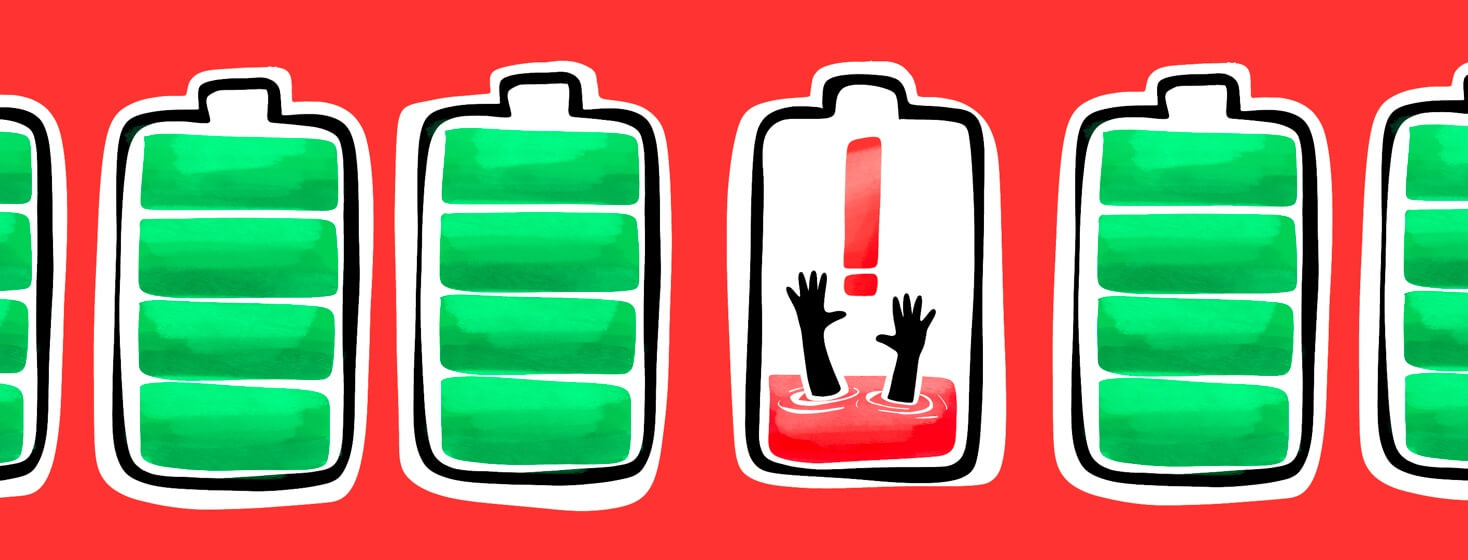Questions That Linger after Half a Century of Juvenile Rheumatoid Arthritis: When to Seek Help
I've now lived with the juvenile form of rheumatoid arthritis for over 50 years. I wish all that time meant that I had everything figured out, but unfortunately, just like life, JRA has kept me guessing. Don't get me wrong, I do feel like I deal with things much better than I did decades ago, so there is hope! But, questions about certain things linger.
Today the question is- When to seek help.
How do I know when to seek help?
Not long ago, my partner, Todd, had a stroke. When we were at the hospital, the ER doctor discovered that he also had pneumonia and sepsis. It was a big surprise to us both, although it really shouldn’t have been. He had been feeling extremely tired with increased pain for a month. We both kept rationalizing his symptoms. Because he also lives with chronic illness and pain, it wasn’t hard to blame his symptoms on his migraines, the fact that he had been overworking this summer physically getting a yard started in his new house, or the fact that he had just started a new kind of therapy for his PTSD.
Week by week, we would hear from his therapist- don’t worry, fatigue means you are having a good response to treatment. When he had a week-long migraine, I just helped him tough it out because this has happened before. We just thought he was having a bad health month. Then one morning, I did my usual check-in and he wasn’t making any sense. Off to the ER we went and a few hours later he was life-flighted to a major hospital for surgery.
Taking care of others, but not myself
When he was discharged, he really needed help. So, I got to work, shopping and cooking for him to get some weight back on his body, and more phone calls to the VA to try desperately to get him the specialty care he needs. On the one hand, I was happy to have something to do, and proud of myself that I was being a big help. I rushed around for weeks, getting things done until I was feeling exhausted constantly. I realized I needed to up my self-care, but I still had a life to live and a partner to support, and self-care kept getting pushed aside.
My own health started to decline
You can guess what happens next; yesterday I was getting an infusion, and before the infusion, bloodwork was done. About five minutes later the head nurse rushes over and asks if I have diabetes. I say no, a bit confused by the question. Another nurse rushes over and gives me apple juice and tells me to drink the whole thing.
Turns out, my blood sugar was 42, which is severely low and apparently requires immediate medical attention. “Do you feel dizzy? Do you have a headache?" “No, I feel fine,” I said, and only after responding did I realize my head actually did hurt. It just didn’t register because the other pain in my body was stronger. This has happened throughout my life- I had a broken leg for 2 days as a kid before doctors decided to take an X-ray, probably because I wasn’t acting like my pain was as bad as it was. The broken leg for me was like a really bad pain day. I was 10, how was I supposed to know?
My pain tolerance is too high to know when I need help
The point of this story is that when you live with chronic illness and pain, it can really be tough knowing when your body needs medical attention. Pain tolerance and tolerance to discomfort get higher when you live with so much of them 24/7. I’m still trying to figure out if there is a way to have a better gauge for this so that both Todd and I don’t have to experience these extreme health lows. We have so much comfort with each other because of our shared experiences, but we aren’t that good at helping each other to decide when to pick up the phone and get help. It’s quite the catch-22!
So, now we are both letting the experts get involved and I plan on asking that very question to my doctor. How does a person who lives in discomfort everyday gauge when to seek help? I doubt there will be a foolproof answer, but if I hear anything helpful I’ll be sure to pass it on! Have you had similar struggles and if so, how do you know when to seek help for a symptom or concern?

Join the conversation